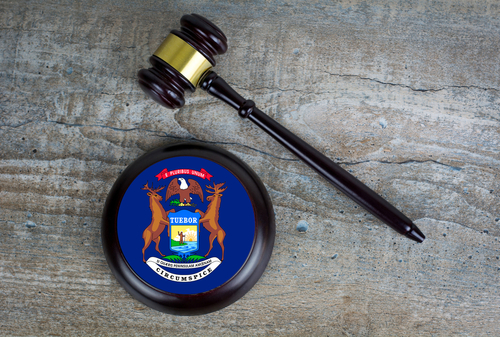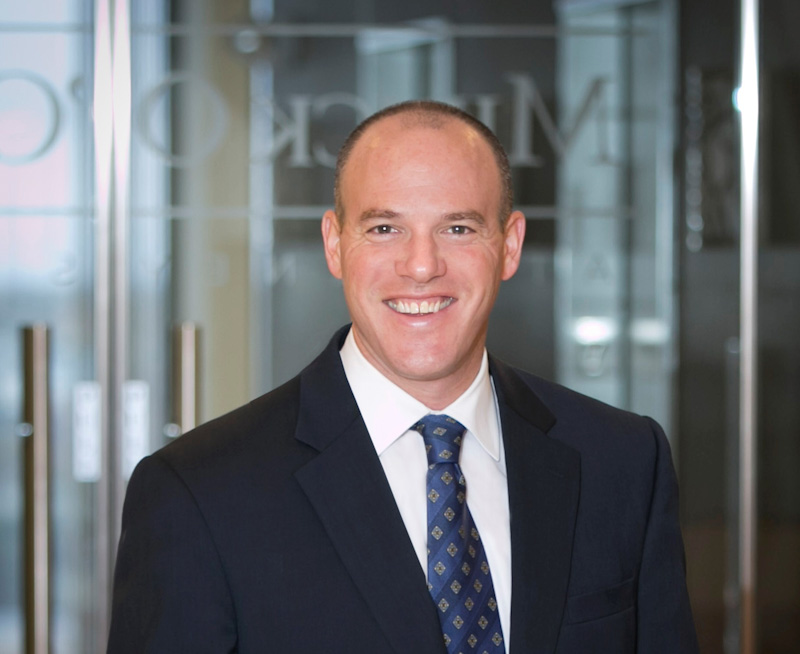Shaken-baby murder conviction overturned after defendant offers evidence questioning diagnosis

The Michigan Supreme Court has granted a new trial to a woman convicted of killing her infant daughter by shaking her, holding that proposed expert testimony on shaken baby syndrome would likely result in an acquittal. (Image from Shutterstock)
The Michigan Supreme Court has granted a new trial to a woman convicted of killing her infant daughter by shaking her, holding that proposed expert testimony on shaken baby syndrome would likely result in an acquittal.
The state supreme court granted a retrial to Milton Lee Lemons, who is called Chazlee Lemons in a story by the Associated Press on the July 25 decision. Lemons was convicted for the 2005 death of her 11-week-old daughter, Nakita, and sentenced to life in prison.
Lemons had gone to a neighbor’s house to report that Nakita was choking. The neighbor, who saw baby formula pouring out of Nakita’s mouth, advised Lemons to call 911. Lemons instead called her wife and her mother-in-law. The neighbor called 911. Paramedics found that Nakita was unresponsive. The baby died the next morning at the hospital.
The forensic pathologist who conducted the autopsy, Dr. Bader Cassin, found brain swelling and concluded that his findings supported a diagnosis of shaken baby syndrome.
The day after Nakita’s death, police arrested Lemons. At first, Lemons said Nakita was having trouble breathing after she put her to bed. She told police that she asked the neighbor to call 911, and then she performed CPR. According to police, Lemons said she didn’t know whether she shook Nakita too hard when trying to wake her up. At that point, police confronted Lemons with the autopsy results, and Lemons told a different story, police said.
Lemons said her daughter wouldn’t stop crying, so she “shook her three or four times to get her to be quiet.” The baby then started spitting up formula and was unresponsive.
In 2017, Lemons filed a motion for relief from the judgment on the basis of new evidence questioning the shaken-baby diagnosis. Cassin testified at an evidentiary hearing that he no longer thought that shaking would be sufficient to produce the baby’s injuries. Possible causes of death included choking, trauma or homicide, he testified.
Lemons submitted affidavits from a pediatrician, a forensic pathologist and a pediatric radiologist who doubted the shaken-baby diagnosis. The experts said shaking a baby couldn’t injure the brain absent a neck injury, and that choking was the more likely cause of death.
Prosecutors, however, presented expert witnesses who supported shaken baby syndrome as a possible diagnosis. A rebuttal witness for the defense, a biomechanical engineering expert, would have testified that shaking couldn’t produce the alleged injuries without also causing significant neck injuries.
A trial judge had refused to admit testimony from Lemons’ expert witnesses, which was an abuse of discretion, the Michigan Supreme court said in its 5-2 decisions.
Lemons should be able to present testimony on an alleged controversy in the medical community on the diagnosis of shaken baby syndrome, that Nakita’s injuries were not consistent with abusive shaking, and the theory that Nakita died from choking, the majority said.
The jury at retrial could conclude that Lemons’ confession was false.
“As we have recognized elsewhere,” the state supreme court said, “suspects presented with seemingly incontrovertible physical evidence of their guilt may confess falsely to ameliorate their current conditions.”
Two dissenters argued that Lemons’ conviction should stand.
“Leagues of pediatric institutes and organizations resoundingly reject defendant’s anti-scientific claim as a clever manipulation of evolving medical terminology, produced almost entirely for legal arguments in a courtroom,” the dissent said.
The Innocence Clinic at the University of Michigan Law School had represented Lemons, the AP reported. The clinic has represented other shaken-baby defendants who challenged their convictions.
See also:
Unsettling Science: Experts are still debating whether shaken baby syndrome exists
Write a letter to the editor, share a story tip or update, or report an error.



